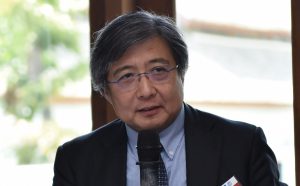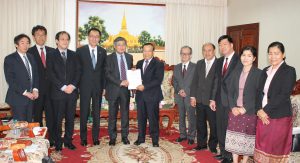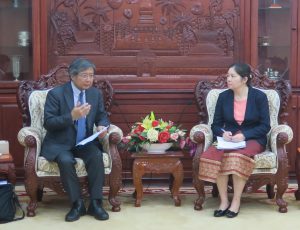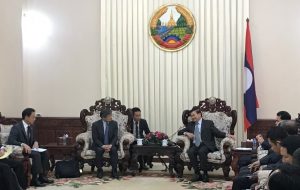Professor Toshiro Nishizawa contributed an article “Laos-China Railway Launched” to Economist Weekly Special Issue “World Economic Forecasts 2022” (December 28/January 4)
https://weekly-economist.mainichi.jp/articles/20220104/se1/00m/020/041000c
中国とラオスを結ぶ「中国ラオス鉄道」が12月3日、開業した。国内に鉄道網を持たないラオスは、1975 年の建国以来の悲願を果たした。ラオスも加盟する東南アジア諸国連合 (ASEAN)では、中国の経済的存在感が年々高まっているが、そうした中国の経済力を利用しようとするラオス側のしたたかさが結実した側面もある。
(中略)
ASEAN での中国の存在感の高まりは、21年11 月の中国 ASEAN 特別首脳会議で、従来 の関係を格上げした「包括的戦略パートナーシップ」合意に至ったことからも明らかだ。しかし、中国は「債務のわな」をあえて仕掛けているのか。中国も「内憂外患」と無縁ではない。であれば、米中対立が続く中、あえて国際的批判を浴びるリスクを冒すとは考えにくい。ラオスはそうした中国の経済力を利用しつつ、外交面ではバランス感覚をもって隷属を避ける道を探っている。
Prior to this, Nikkei Asia quoted Professor Toshiro Nishizawa’s views on “Laos-China railway”.
https://asia.nikkei.com/Spotlight/Belt-and-Road/China-Laos-high-speed-railway-set-to-roll-through-COVID-cloud
In the wake of the pandemic, the Laotian people “will stay patient without demanding early rewards from the Laos-China railway,” said Toshiro Nishizawa, a professor at the University of Tokyo. “But post-pandemic developments over the next five years might potentially put the Laotian government on the spot.”
The yardsticks for success, he added, would be tourist traffic from China “as well as the volume and time savings of freight transport, especially from Laos to China.”
Yet Nishizawa, a former policy adviser to the Laotian government, contends that the opaque nature of the project may complicate assessments. “Warnings of trouble, either early or late, could come from the financial viability of the railway … to generate sufficient income to meet operational and debt commitments,” he said. But that “might not become clear because of the nature of the project as a ‘business-to-business’ deal without full disclosure of information.”
Diplomatic implications are expected to come under scrutiny as well.








